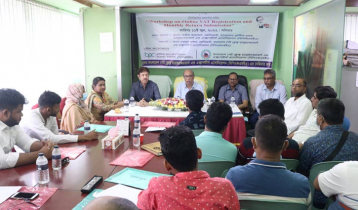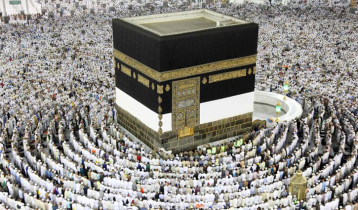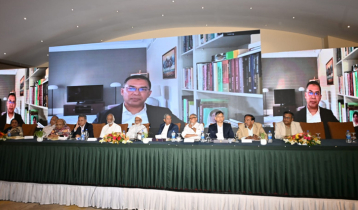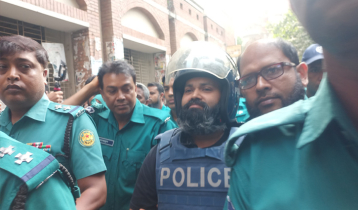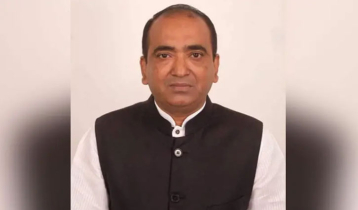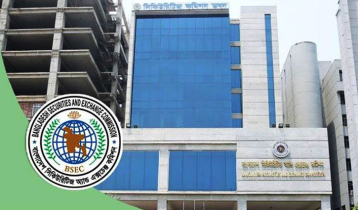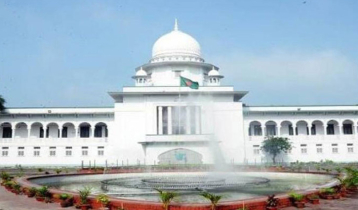Quick steps needed to curb noise pollution
5 || risingbd.com
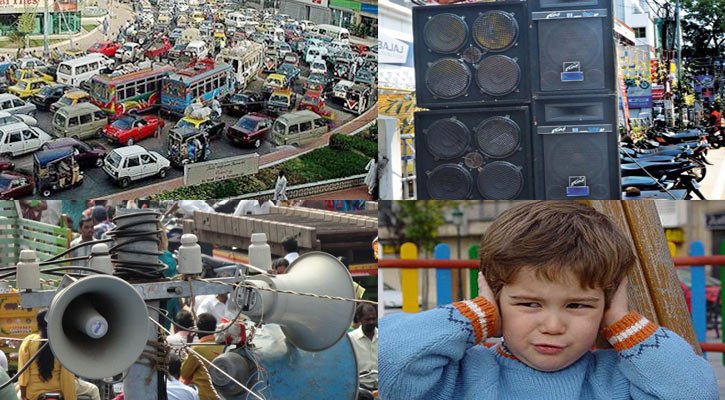
Noise pollution is increasing at an alarming rate in the capital Dhaka. The pollution is on the rise not only in Dhaka but also at almost all divisional cities. As a result, the next generation is losing its hearing power. According to a recent survey conducted by Poribesh Bachao Andolon (POBA), the extent of noise pollution is nearly two times higher than the human tolerance in the Dhaka city, causing various types of physical and mental disorder to the people.
As per the guidelines framed in 2006, no individual or institution can cross the highest level of noise in an area. But the POBA survey report said the extent of noise pollution is higher than the normal level in many areas.
High frequency horns from vehicles cause extreme pressure on human vein and nervous system. Constant noise pollution damages the in-ear tissues, which poses threat to one's psychological balance in addition to health hazard. Then we cannot hear the normal level of noise.
Long term exposure to noise pollution not only harms one's hearing ability but also it causes high pressure, headache, indigestion, peptic ulcer, insomnia including many mental problems etc. Intelligence of children damages due to excessive noise pollution and any type of high sound is serious harmful for expectant mothers.
No steps were seen to take for preventing constant noise pollution. As per the guidelines framed in 2006, the maximum noise limit for residential areas from 6:00am up to 9:00pm is 55 decibels and 45 decibels from 9:00pm up to 6:00am. At the same time, the degree of noise pollution in quiet areas has been set at between 50 and 40 decibels, 70 and 60 decibels in commercial areas and 75 and 70 decibels in industrial areas. Crossing these degrees is punishable offence.
But in reality these rules and regulations are not being followed. An insane competition of noise pollution is noticed when we move in the streets. Horns are randomly whistled. It seems that drivers are in a competition for whistling horns. Not only horns from vehicles but also public gathering and mikes used for social and religious purposes are causing noise pollution enormously. The high sounds created this way are hampering the sound sleep of children, aged people and sick patients. It is also hampering the study of students.
According to World Health Organisation (WHO), long term exposure to noise level at 60 decibels harms one's hearing ability while more than 100 decibels might permanently damage it. Besides, 30 to 40 decibels are tolerable for office rooms and class rooms of educational institutions, 20 to 35 decibels for hospitals, and 40 to 60 decibels for restaurants.
According to the Environment and Forest Conservation Act framed in 1997, hospitals, educational institutions and some institutions set by the government are considered as the quiet areas. The 100 meter distance from aforementioned institutions has been marked as quiet areas. Whistling horns and using mikes with high volumes are totally banned in the quiet areas. No one is seen to care of the act. There is no apparent use of the act despite having fine and imprisonment for the noise pollutants.
The government should take immediate steps to curb noise pollution in order to protect city dwellers. The government should also conduct mobile courts, hang up signboards with restriction on horn usage and take necessary steps to inspire people to follow the rules and regulations. Proper enforcement of the existing law should be ensured imposing a ban on high frequency horns and a media campaign.
risingbd/DHAKA/Feb 5, 2017/Ali Nowsher/Amirul
risingbd.com



